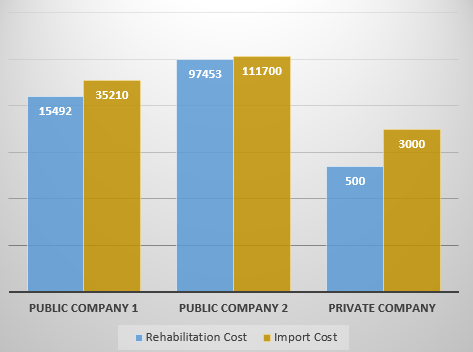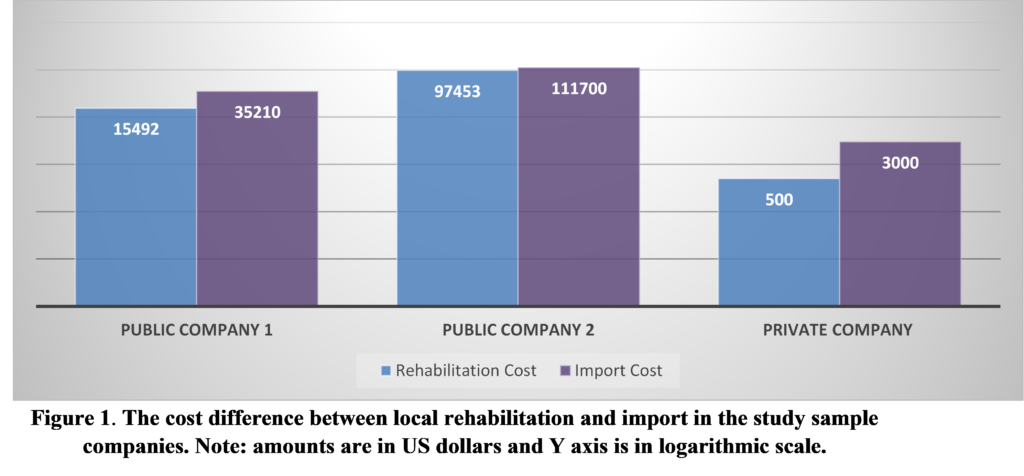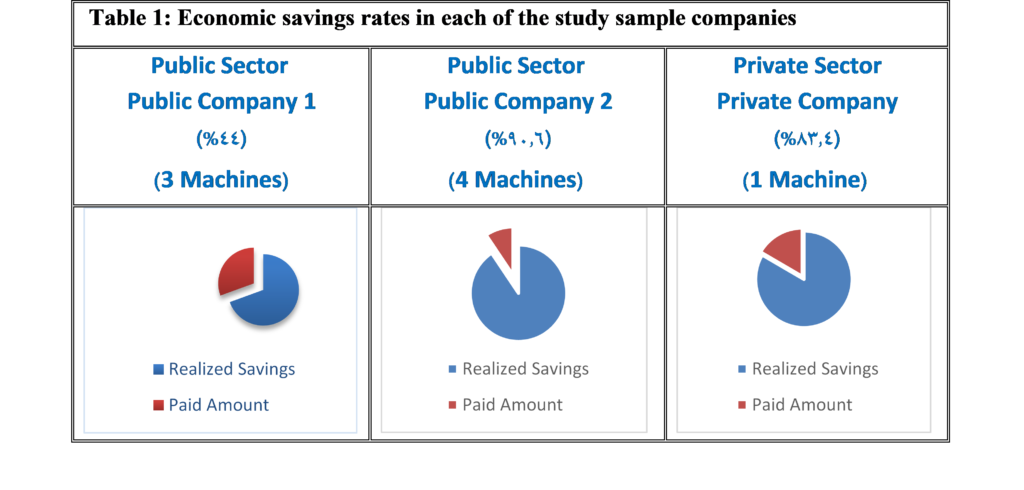Embracing Creativity and Innovation and Exiting the Bottleneck: the Solution is in Funding and Investment





The connection of scientific research with the requirements of development in a society in all fields is one of the basic foundations for social advancement. Research and development (R&D) require a strong linkage between scientific research bodies (SRBs) and the society represented by productive and service bodies (PSBs) in order to allow these bodies to identify their needs and develop their research plans accordingly. Thus, we could reach translational scientific research that constitutes a foundation clearly linked to development goals.
The terrorism that afflicted the country and the destruction that befell many development sectors, the most important of which is the industrial sector, has led to the exit of a group of production lines and machines from service as a result of their destruction or suspension for a long period of time, and especially their old operating software. The option of importing machines and software has become not possible as a result of the forced economic blockade on the country, noting that the import process is the most difficult option, as it is considered a drain on foreign exchange due to the high cost.
It does not achieve self-sufficiency and creates technical dependence on the exporting countries, with negative impact on the production process. The most important solution offered now is to rely on the import substitution policy according to clear and precise criteria that work to define target sectors and materials in line with developmental goals, and defining a local alternative for those materials developed by local academic expertise, aiming to reduce the import bill and thus stopping the depletion of foreign exchange.
On 6/01/2019, the Import Substitution Program (ISP) was approved at the Cabinet meeting, and it was decided to assign the Ministry of Economy and Foreign Trade to follow up on the implementation of the program in coordination with whoever is needed, according to the Prime Minister’s document No. 1/231 dated 1/9/2019.
As the program aims to reduce the import bill for commodities that can be produced locally, stop the depletion of foreign exchange, and achieve self-sufficiency in a number of materials, according to a set of economic considerations related to the efficient use of resources and focus on quality issues. Nevertheless, by reviewing the materials and sectors included in the program, one could note the absence of imports software, despite its significant impact on the industry and the economy in general, and its ability to achieve acceptable economic savings in the event that it is replaced by scientific research outputs.
To clarify this statement, a field study was conducted in some companies that took individual initiatives to rehabilitate some of their machines and put them back to service through local scientific research cadres. / 3 / companies were selected; two companies from the public sector, one from the private sector, in addition to meeting with one of the local academic expert to demonstrate the ability of local experiences to secure the authentic alternatives. Through field visits and interviews with the concerned personnel, some information was collected that clarified the reality of substituting software imports, and the possibility of research capabilities and local expertise to contribute to the import substitution program.
By asking the following questions:

The study reached a set of results, the most important is that software imports are not included in the ISP, with many machines and production lines stopped in public and private sector companies for software defects, despite the existence of research capabilities, local expertise and research outputs capable of rehabilitating these machines through providing a software alternative, thus replacing with imported ones, in addition to the possibility of developing these machines, as local expertise could add additional features to them. Nonetheless, this comes with the assurance that the outputs provided by these rehabilitated machines are in accordance with the approved standard specifications and with the required quality. Thus, it ensures the operational and development side and the quality of the output.
Figure 1 and Table 1 show the cost difference between local rehabilitation and import in the study sample companies, in addition to the economic savings achieved. We found that replacing the appropriate software indeed works to achieve the basic objectives of the program and ensures the relative weight of the software, and these achieved savings are only for some machines selected from very few public and private industrial sector institutions, and therefore we can conclude the extent of the economic savings that will be achieved from including software in the import substitution program and applying this principle at all institutions and companies in the industrial sector.
The study also showed the experience of one of the local experts in converting student projects into applied projects that met the needs of the authorities, meeting their objectives and provide them with the best results. Among 16 research projects, 9 of them were applied, hence this is a very acceptable percentage and reflects the ability of those research experiences to meet the needs of productive entities. In fact, it can be said that the scientific and research authorities in Syria have the ability to support the various development sectors through ISP, working on developing these sectors and achieving meaningful economic savings.
 Our results also show that there are many obstacles that prevent the success of the interlinking between the SRBs and PSBs, the most important of which is the lack of institutionalization of the interdependence process among them.
Our results also show that there are many obstacles that prevent the success of the interlinking between the SRBs and PSBs, the most important of which is the lack of institutionalization of the interdependence process among them.
The communication process, as in the current situation, is a routine and ineffective process that depends on personal relationships, and this is ineffective most of the time. Therefore, it is necessary to institutionalize this interlinking and work to create an ecosystem that secures real and effective networking between the two parties according to clear principles and mechanisms. In this regard, technology transfer mechanism must be ongoing from research and development centers to industry, and making the best use of the technology transfer system in the Syrian Arab Republic, which the Higher Commission for Scientific Research (HCSR) has recently established.
In addition, obstacles related to funding and adequate financial support for the completion of research projects are dominating, and hence, it is necessary to increase the funds allocated for scientific research. Finally, we defined obstacles related to the integration of specializations required to complete the project. This constraint can be solved by forming research teams with integrated specializations to ensure the completion of the project with the required accuracy.
In conclusion, it can be said that scientific research and technological development are of great importance during crises, and have a major role in contributing to the re-advancement of the various development sectors, as the importance of scientific research lies in its translational outputs through appropriate investment. Linking SRBs to PSBs and society, and the transfer of applied scientific knowledge/technology are not exclusive to the use of technology or creating a correct business environment, but rather is a matter of knitting multiple relationships between production, transfer and investment of knowledge altogether.
The actual aim is to provide a vision for the future role that scientific research can play in comprehensive development (human – economic – knowledge) in Syria, including the field of imports substitution, especially software imports, and its role in reducing the import bill and improving the competitiveness of the business sectors (both productive and service), and to understand how issues affecting business sectors can be transformed into ideas for translational research and innovation.
Note: This analysis was done during a training joint program between the National Institute of Public Administration (INA) and the higher commission for scientific research (HCSR), and was supervised by both Dr. Ghaith Saker, the scientific deputy manager of HCSR as well as the general director of HCSR, Dr. Majd Aljamali.
Acknowledgments: We do thank Dr. Ayham Assad, the director of research and consulting department at the National Institute of Public Administration (INA) for his supervision during the training period and Dr. Bassel Younis for his generous help.

Journal:![]() Syrian Journal for Science and Innovation
Syrian Journal for Science and Innovation
Abbreviation: SJSI
Publisher: Higher Commission for Scientific Research
Address of Publisher: Syria – Damascus – Seven Square
ISSN – Online: 2959-8591
Publishing Frequency: Quartal
Launched Year: 2023
This journal is licensed under a: Creative Commons Attribution 4.0 International License.